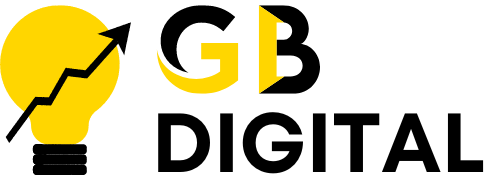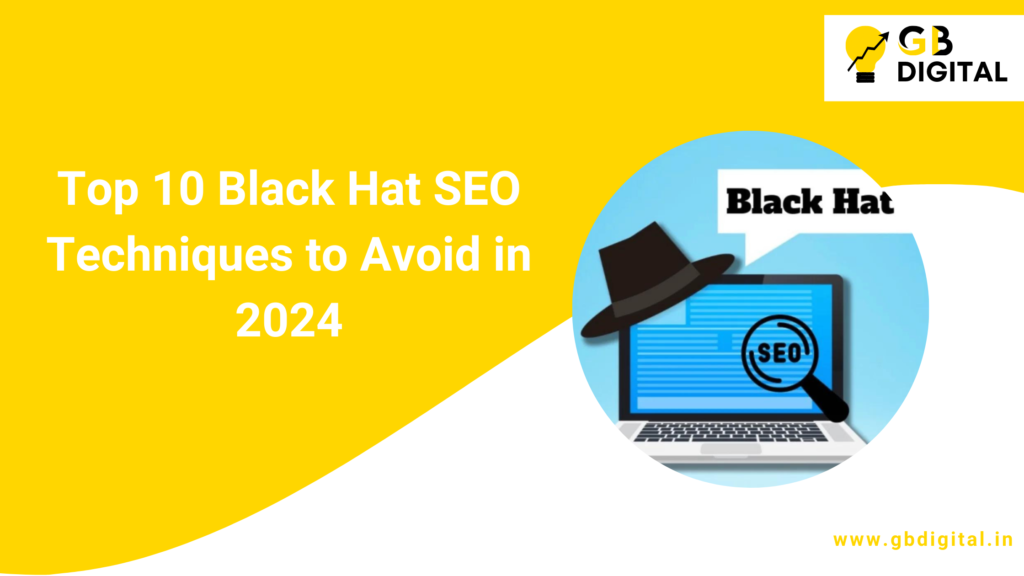In the ever-evolving world of search engine optimization (SEO), it’s crucial to stay ahead of the curve and employ strategies that not only improve your website‘s visibility but also adhere to ethical guidelines. While the temptation to take shortcuts with Black Hat SEO Techniques can be strong, it’s important to recognize the long-term consequences. These techniques might offer quick wins, but they often lead to severe penalties from search engines, which can have devastating effects on your website‘s ranking and reputation.

We’ll explore the top 10 Black Hat SEO Techniques that you should avoid in 2024 to ensure your website remains in good standing with search engines and provides a genuine user experience.
Keyword Stuffing
Keyword stuffing involves overloading a webpage with keywords in an attempt to manipulate its ranking in search results. This tactic not only creates a poor user experience but also raises red flags with search engines like Google. Modern algorithms are sophisticated enough to detect unnatural keyword density, leading to penalties that can significantly harm your site’s ranking.

Cloaking
Cloaking is a deceptive technique where different content is presented to search engines and users. This tactic might temporarily boost rankings, but it’s a major violation of search engine guidelines. Once discovered, websites using cloaking can be penalized or even removed from search engine indexes entirely.
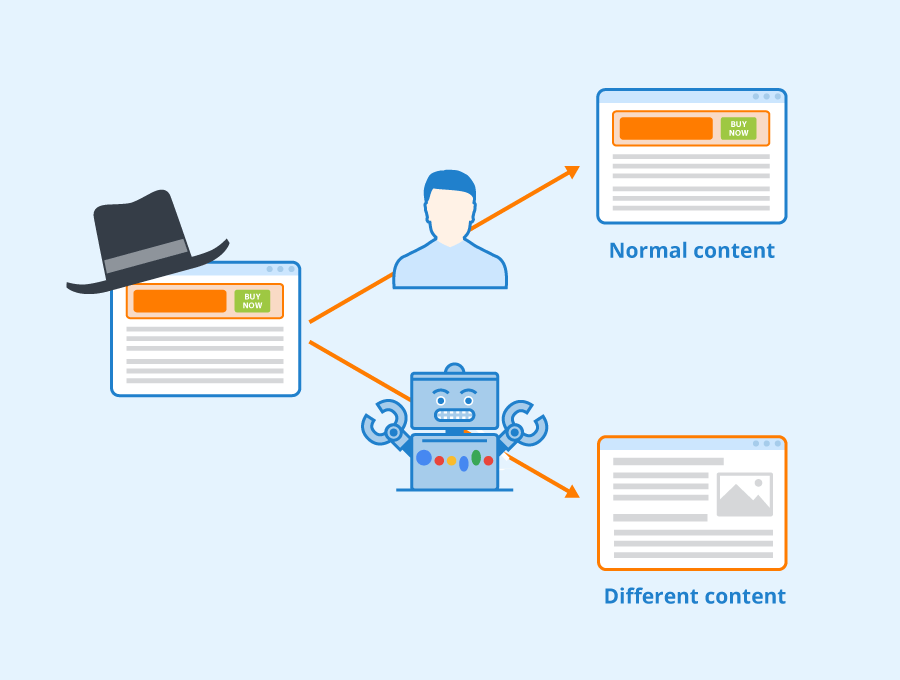
Paid Links
Buying or selling links to manipulate search engine rankings is another Black Hat SEO technique. While acquiring links naturally through quality content is encouraged, paying for links can lead to penalties. Search engines prioritize the authenticity and relevance of backlinks, and any attempt to manipulate this can backfire.

Doorway Pages
Doorway pages are low-quality pages created solely to rank for specific keywords. These pages often redirect users to another destination and provide little to no value. Search engines are quick to penalize sites using doorway pages, as they contribute to a poor user experience.
Hidden Text and Links
Using hidden text and links is a sneaky way to include keywords and links on a page without disrupting its visual appeal. This can involve using white text on a white background, positioning text off-screen, or using zero-size fonts. However, search engines are adept at identifying these tricks, and employing them can result in severe penalties.
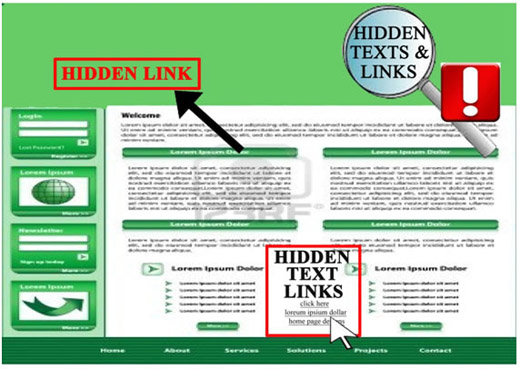
Content Scraping
Content scraping involves copying content from other websites and republishing it as your own. Not only is this unethical, but it can also lead to duplicate content penalties. Search engines favor original, high-quality content, and scraping others’ work can damage your site’s credibility and ranking.
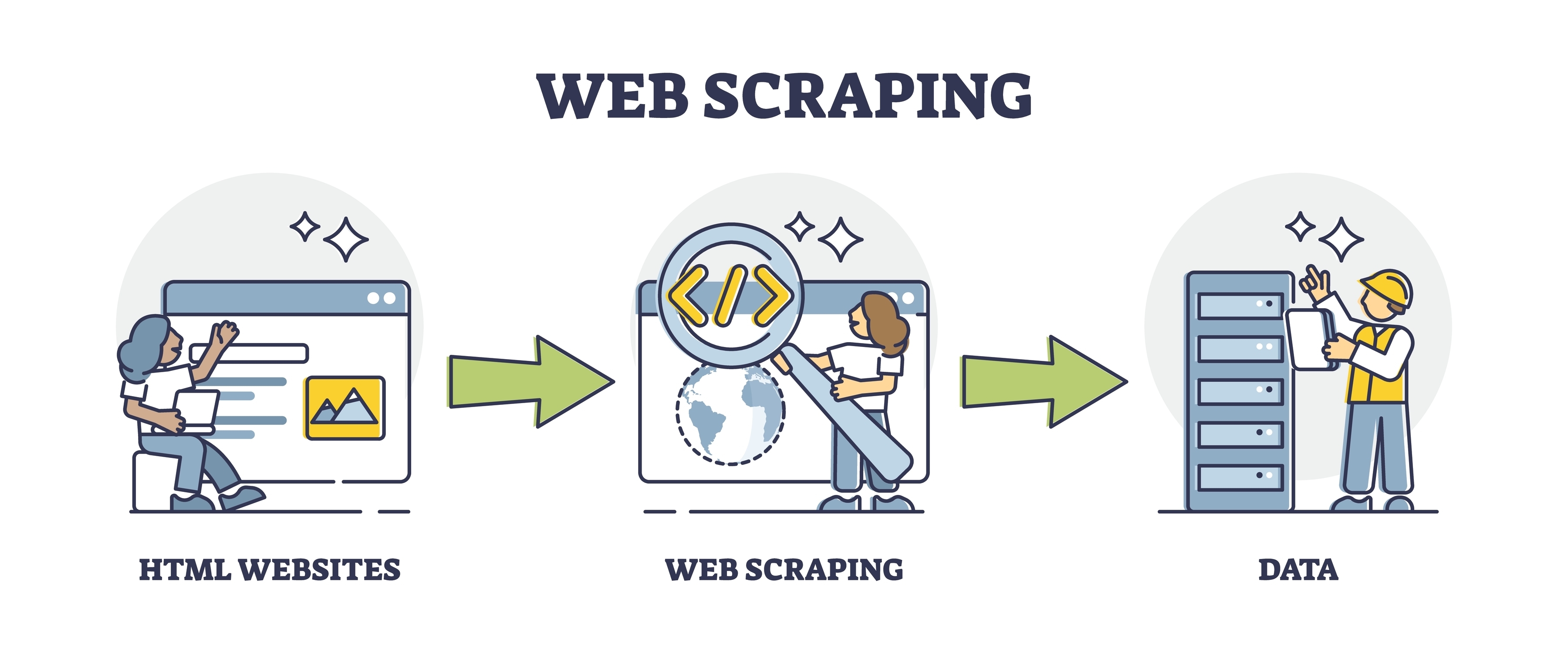
Article Spinning
Article spinning is the practice of rewriting existing content using software to create “new” articles. These spun articles are usually low-quality and difficult to read, which diminishes user experience. Search engines prioritize unique, valuable content, and spinning articles can lead to penalties for producing low-quality content.

Clickbait Titles
Clickbait titles are designed to attract clicks by making exaggerated or misleading claims. While this may temporarily increase traffic, it often results in a high bounce rate as users quickly realize the content doesn’t deliver on its promises. Search engines monitor user behavior, and a high bounce rate can negatively impact your rankings.

Private Blog Networks (PBNs)
A Private Blog Network (PBN) is a group of websites created solely to build backlinks to a central website, artificially inflating its authority. PBNs violate search engine guidelines, and once detected, all sites involved can be penalized or de-indexed. Building backlinks through genuine outreach and quality content is a far better strategy.
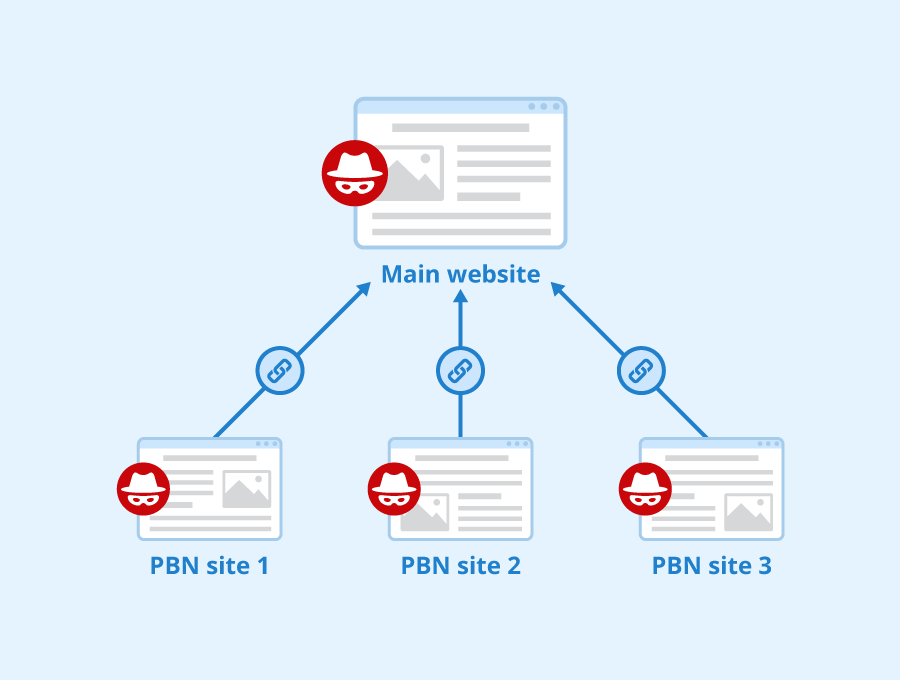
Negative SEO
Negative SEO involves using Black Hat SEO Techniques to sabotage a competitor’s website. This can include building spammy links to their site, hacking their content, or creating fake reviews. While this is an unethical practice, it’s important to be aware of its existence and protect your website by regularly monitoring your backlinks and online reputation.
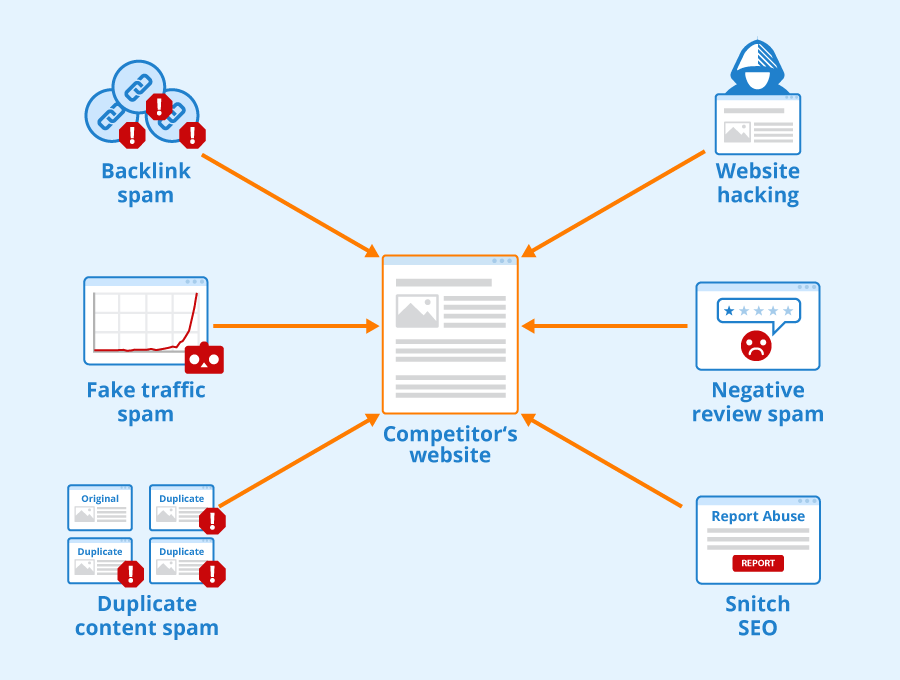
Conclusion
While Black Hat SEO Techniques might offer quick results, they come with significant risks. Search engines are becoming increasingly sophisticated in detecting and penalizing such tactics. To build a sustainable and successful online presence, it’s essential to focus on White Hat SEO techniques that prioritize user experience, quality content, and ethical practices.
Avoiding these Black Hat SEO Techniques in 2024 will not only protect your website from penalties but also help you build a trustworthy brand that attracts and retains users. Remember, in the long run, ethical SEO practices are the key to lasting success.
